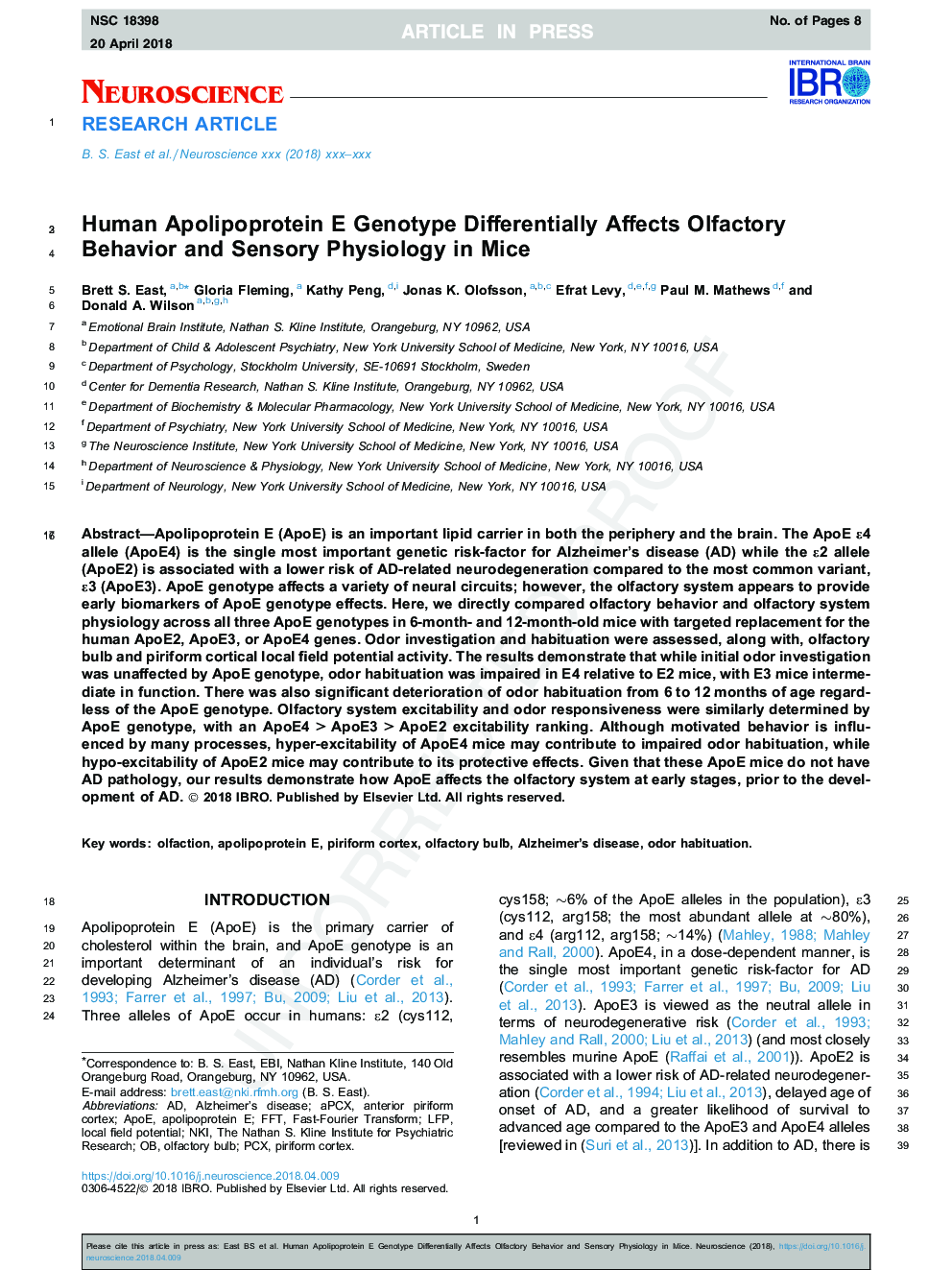| کد مقاله | کد نشریه | سال انتشار | مقاله انگلیسی | نسخه تمام متن |
|---|---|---|---|---|
| 8840743 | 1614696 | 2018 | 8 صفحه PDF | دانلود رایگان |
عنوان انگلیسی مقاله ISI
Human Apolipoprotein E Genotype Differentially Affects Olfactory Behavior and Sensory Physiology in Mice
ترجمه فارسی عنوان
ژنوتیپ آپولیپوپروتئین انسانی انسان به طور متفاوتی بر رفتار تغذیهای و فیزیولوژی حسی در موشها تأثیر میگذارد
دانلود مقاله + سفارش ترجمه
دانلود مقاله ISI انگلیسی
رایگان برای ایرانیان
کلمات کلیدی
موضوعات مرتبط
علوم زیستی و بیوفناوری
علم عصب شناسی
علوم اعصاب (عمومی)
چکیده انگلیسی
Apolipoprotein E (ApoE) is an important lipid carrier in both the periphery and the brain. The ApoE ε4 allele (ApoE4) is the single most important genetic risk-factor for Alzheimer's disease (AD) while the ε2 allele (ApoE2) is associated with a lower risk of AD-related neurodegeneration compared to the most common variant, ε3 (ApoE3). ApoE genotype affects a variety of neural circuits; however, the olfactory system appears to provide early biomarkers of ApoE genotype effects. Here, we directly compared olfactory behavior and olfactory system physiology across all three ApoE genotypes in 6-month- and 12-month-old mice with targeted replacement for the human ApoE2, ApoE3, or ApoE4 genes. Odor investigation and habituation were assessed, along with, olfactory bulb and piriform cortical local field potential activity. The results demonstrate that while initial odor investigation was unaffected by ApoE genotype, odor habituation was impaired in E4 relative to E2 mice, with E3 mice intermediate in function. There was also significant deterioration of odor habituation from 6 to 12â¯months of age regardless of the ApoE genotype. Olfactory system excitability and odor responsiveness were similarly determined by ApoE genotype, with an ApoE4â¯>â¯ApoE3â¯>â¯ApoE2 excitability ranking. Although motivated behavior is influenced by many processes, hyper-excitability of ApoE4 mice may contribute to impaired odor habituation, while hypo-excitability of ApoE2 mice may contribute to its protective effects. Given that these ApoE mice do not have AD pathology, our results demonstrate how ApoE affects the olfactory system at early stages, prior to the development of AD.
ناشر
Database: Elsevier - ScienceDirect (ساینس دایرکت)
Journal: Neuroscience - Volume 380, 1 June 2018, Pages 103-110
Journal: Neuroscience - Volume 380, 1 June 2018, Pages 103-110
نویسندگان
Brett S. East, Gloria Fleming, Kathy Peng, Jonas K. Olofsson, Efrat Levy, Paul M. Mathews, Donald A. Wilson,
